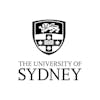|
The fighting will soon stop in Gaza, at least temporarily.
Israel and Hamas have agreed on a ceasefire to last at least four days, along with the release of at least 50 of the Israeli hostages held by Hamas and 150 Palestinian prisoners held in Israel.
Israeli Prime Minister Benjamin Netanyahu’s office said the ceasefire could also be extended – one additional day in exchange for 10 additional hostages.
While the agreement is a positive step, much remains uncertain – including what this means for Netanyahu’s leadership.
As Ran Porat writes for us today, Israelis have come together in heartfelt national solidarity in response to the October 7 Hamas attacks. At the same time, no one can forget the vitriol that threatened to tear the country apart just months ago, over Netanyahu’s divisive plans for judicial reform.
Porat says as long as the war continues, Netanyahu’s position appears safe. But the feeling in Israel is that his days are numbered.
|

|
Justin Bergman
International Affairs Editor
|
|

Ran Porat, Monash University
Despite mounting public anger, the veteran leader has proven time and again that it is not wise to bet against him.
|

Donald Rothwell, Australian National University
War crimes investigations are long, complex and involve international sensitivities. Nonetheless, there is growing inevitability that there will be prosecutions from the Israel-Gaza war.
|

David Tuffley, Griffith University
Australia could become one of the world’s strongest cyber nations – but the success of the new strategy will come down to the details.
|

Rachel Standish, Murdoch University
Carbon farming has its problems, but we shouldn’t write it off. After all, good projects can store carbon – and bring back habitat.
|

Hassan Vally, Deakin University
With rising cases and as we head towards the festive season, testing remains important.
|

Clive Aspin, Te Herenga Waka — Victoria University of Wellington; Gabrielle Jenkin, University of Otago
Allowing whānau to be more engaged in the coronial investigation into a suicide would help provide answers for family – and help mental health services improve preventative measures.
|

Michelle Grattan, University of Canberra
In this podcast, The Greens Senator joins us today to talk about consultancy reform, whistleblower protection, and other issues
|

Yara M. Asi, University of Central Florida
High levels of diarrhea, scabies and respiratory infections have been reported as bombing campaign progresses – and children are the most vulnerable.
|

Sam Halvorsen, Queen Mary University of London
The maverick ‘anarcho-capitalist’ faces huge challenges as he sets out to completely remodel the Argentinian economy.
|

Matthew Sharpe, Australian Catholic University
Nazi war criminal Adolf Eichmann was anything but banal. His case is an apt reminder of how evil agents can deflect accountability, denying victims even the thin consolation of the moral high ground.
|

Caroline Spry, La Trobe University; Brian J Armstrong, The University of Melbourne; Greg Ingram, Indigenous Knowledge; Ian Sutherland, Indigenous Knowledge; Lawrence Conyers, University of Denver
A new study unlocks the mysteries of ancient burial marker trees made by Wiradjuri people in southeastern Australia.
|
Politics + Society
|
-
Jordan Bakhsh, Deakin University
Australians delighted in the Women’s World Cup and saw huge benefits for the host cities – but for Perth and Adelaide, there was a feeling of being on the sidelines.
-
Greg Austin, University of Technology Sydney
The Australian government has promised to crack down on companies that aren’t prepared to defend themselves against cyber crime, but their proposed new laws may offer those same businesses a reprieve.
|
|
Health + Medicine
|
-
Clare Collins, University of Newcastle
There are a number of ways to ‘detox’. But do they work? And are they safe?
-
Rob McLachlan, Hudson Institute; Jinghang Luo, Hudson Institute; Tim Moss, Monash University
Understanding which changes are normal and when to seek help is important. Here’s what you need to know.
|
|
Science + Technology
|
-
Piers Howe, The University of Melbourne
We tested how ChatGPT stacks up against professional advice columnists – with some intriguing results.
|
|
Environment + Energy
|
-
Zoe Goodall, Swinburne University of Technology; Sungkavi Selvakumaran, Torrens University Australia
More Australians than ever live in rented homes, many of which get far too hot. With summers getting longer and hotter, keeping millions of people cool should be a national housing policy priority.
|
|
Education
|
-
Hugh Gundlach, The University of Melbourne
As Australia tries to raise the status of teaching, new research shows how mainstream film and TV portrayals are not helping.
|
|
Business + Economy
|
-
Paul Harrison, Deakin University
A fear of missing out and a need to belong are strong motivators when it comes to scooping up goods at bargain prices.
|
|
| |
|
|
|
The Conversation AU
Melbourne VIC, Australia
•
Full Time
|

|
|
The Conversation AU
Melbourne VIC, Australia
•
Full Time
|

|
|
The Conversation AU
Melbourne VIC, Australia
•
Full Time
|

|
|
|
|
| |
| |

|
| |
| |
| |
Featured Events, Courses & Podcasts
|
View all
|
|
1 January 2023 - 7 October 2026
•
|

|
|
|

|
30 November - 1 December 2023
•
Melbourne
|

|
2 December 2023
•
The University of Sydney
|

|
|
|
|
| |
| |
| |
| |
| |
|
|